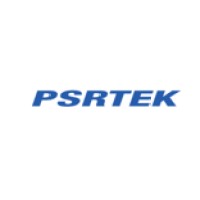Description
Summary: The role of a Manufacturing Engineer is multifaceted and involves various responsibilities. It combines elements of design engineering, creative problem-solving, and hands-on work. This position plays a critical role in creating, optimizing, and overseeing assembly lines and production processes. Job Responsibilities: • Design and create assembly lines and production processes
. • Develop creative solutions for manufacturing challenges. • Work with mechanical and electrical components, including pneumatics, electrical motors, and sensors.
• Collaborate with design engineers to turn product designs into feasible manufacturing plans. • Budget for manufacturing projects and ensure cost-effectiveness.
• Create process flow diagrams and work instructions for operators. • Implement error prevention measures, such as fixtures and jigs, to ensure correct assembly.
• Troubleshoot and provide support for machinery and processes. • Collaborate with a team of engineers to refine designs and ensure functionality.
Skills: • Proficiency in CREO for fixture and tooling design. • Familiarity with PLC programming and pneumatics. • Hands-on experience with assembly and manufacturing processes.
• Creative problem-solving abilities. • Strong written and verbal communication skills.
Education/Experience: • A degree in engineering, preferably, Mechanical Engineering • 3- 6 years Previous experience in manufacturing engineering Position’s Contributions to Work Group: Manufacturing Engineers are key contributors to the overall production process. They bridge the gap between design and manufacturing, ensuring that products can be built efficiently and effectively. Typical Day in the Role A typical day in the role involves designing and optimizing assembly lines, creating work instructions, troubleshooting issues, and collaborating with a team of engineers to refine designs and processes. Interaction with team: Manufacturing Engineers work closely with design engineers, test engineers, and other manufacturing engineers. Collaboration and knowledge sharing are essential. Work environment: The work environment is hands-on, involving both design work on a computer and practical assembly and troubleshooting tasks. It requires a willingness to engage with physical tasks and machinery. Candidate Requirements Technical Skills (Required): • Proficiency in CREO for fixture and tooling design. • Creating Manufacturing Work Instructions • Familiarity with PLC programming and pneumatics.
• Hands-on experience with assembly and manufacturing processes. Technical Skills (Desired): Additional technical skills, such as electrical engineering, can be beneficial. Soft Skills (Required): • Creative problem-solving abilities. • Strong written and verbal communication skills. Disqualifiers/Red Flags: Candidates who are uncomfortable with hands-on work or lack the required technical skills may not be a good fit for this role Relevant Industry: Heavy Equipment, Automotive – Caterpillar, John Deere, CNH, Navistar, BOBCAT, etc.,
Education
Any Graduate
- Posted On: 09-Dec-2024
- Experience: 3+ years of experience
- Openings: 1
- Category: Manufacturing
- Tenure: Flexible Position

